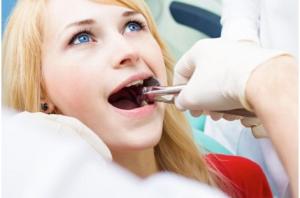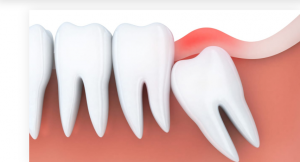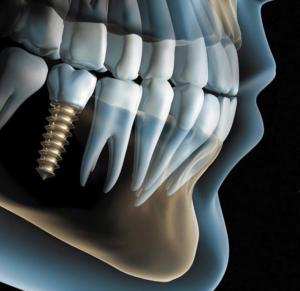
Oral and Maxillofacial Surgery

What is Oral, Dental and Maxillofacial Surgery (Oral and Maxillofacial Surgery)?
Oral, dental and maxillofacial surgery is the branch of science that diagnoses and treats injuries, defects and diseases occurring in the face, jaws and the hard and soft tissues of these areas. This field is an internationally recognized surgical specialty. It is a branch of dentistry in many countries such as Turkey, the United States, Canada, Australia, New Zealand and Brazil. However, it is recognized as a medical specialty in other countries such as the UK. In our country, oral and maxillofacial surgeons receive 4 years of advanced surgical training after receiving dentistry training.
What kind of treatments does our hospital provide?
Treatments can be done on the mouth, jaws and face:
Tooth extraction.

In dentistry, in parallel with scientific and technological developments, the indications for tooth extraction have been quite limited as a result of the principle of keeping the teeth in the mouth as much as possible. On the other hand, teeth that have excessive damage to the tissues surrounding the tooth and are thought to be untreatable due to advanced decay or trauma should be extracted, taking the patient's health into consideration.
Things to do before shooting;
Before the procedure, you must inform your doctor about your existing systemic diseases (health problems), any allergies (to antibiotics, local anesthetics, etc.) and all the medications you use. If there is a medication (antibiotic, etc.) recommended by your doctor before the shooting, be sure to use it as recommended by your doctor. If you have any problems with previous tooth extractions (allergic reaction, fainting, excessive tension, etc.), be sure to inform your doctor. You should have a snack a few hours before the shooting session, and you should not come on an empty stomach unless your doctor tells you otherwise. Brush your teeth thoroughly and rinse your mouth with mouthwash if possible. Thus, you can reduce the bacterial population in the mouth and the risk of infection.
Recommendations After Tooth Extraction;
Bite the applied gauze for 30 minutes. If the bleeding stops, there is no need to insert any tampon. It is not recommended to change the tampon frequently as it will negatively affect clot formation.
After the tampon is removed, slight bleeding may continue for the first 24 hours. No action is required for this. If bleeding starts again, put a damp gauze on the extraction wound and bite. Continue this process for 30 minutes.
Do not drink alcohol or smoke for the first 24 hours. Smoking can cause bleeding and negatively affect wound healing.
To avoid causing bleeding, do not make any sucking movements and do not spit for 24 hours.
Do not eat or drink anything for at least 2 hours.
If there is numbness on the lips, do not control it by biting until it goes away.
A slight pain may occur after the effectiveness of local anesthesia wears off. In this case, painkillers recommended by your doctor can be used.
Stay away from hot and grainy foods (rice, etc.) for the first 24 hours. On the first day, warm soup, juice, milk, yoghurt, ice cream, mashed potatoes, etc. Eat soft foods.
On the day of the shooting, lie down with your head elevated.
In case of excessive bleeding and pain that does not stop for a long time, consult your doctor.
The shooting location must be kept clean. The extraction socket should be prevented from filling with food residue. 24 hours after extraction, the area should be gently brushed with a soft toothbrush. In the meantime, mouthwashes or warm salt water gargles can also be used.
What are the treatment plans after tooth extraction?
The area where the tooth was extracted must be filled with a bridge, removable prosthesis or implant as soon as possible. If it is not filled, digestive disorders due to inability to chew fully, elongation of the upper teeth, positional disorders (tipping, rotation) of adjacent teeth, jaw joint problems, and damage to other teeth due to overload may occur.
What are wisdom teeth?

Wisdom teeth are the third molars located at the back of the tooth row. These teeth, which usually erupt in the twenties, often partially erupt (erupt) or remain embedded in the jawbone due to reasons such as lack of space in the jaw, deviation in eruption position, or bone density in the relevant area.
Should every wisdom tooth be extracted?
NO, wisdom teeth that have fully erupted in the mouth do not need to be extracted if they can be cleaned easily and there is no deep decay on them. However, wisdom teeth that cannot be cleaned easily with dental floss and brush, that have incurable decay, and that rub against the cheek or tongue, causing the person to involuntarily bite their cheek or tongue, need to be extracted.
Should every impacted wisdom tooth be extracted?
NO, but since partially erupted wisdom teeth cannot be cleaned easily, they can easily decay and cause bad breath. Wisdom teeth that remain completely within the bone and cannot erupt can rest on the roots of the second molar tooth next to them, damaging that tooth over time or sometimes forming a cyst around them.
If this type is infected and causes pain and abscess, it should be removed immediately. If it does not cause any problems, it should be kept under control by your doctor and removed if necessary.
Do all wisdom teeth cause crowding in the front teeth?
NO, crowding is also seen in people who do not have wisdom teeth. Because all our teeth have a tendency to move forward. In case of contact disorders between the incisors, crookedness occurs. If treatment is planned to correct this and all teeth need to be moved back, wisdom teeth should be extracted.
In the mouth; Does any swelling or color change on the tongue, cheek, sublingual or palate indicate a dangerous disease?
NO, one of the first places where the initial symptoms of many diseases in the body are seen is the mouth. Therefore, such formations should be monitored and if there are signs of serious discomfort, treatment should be started without delay.
If a cyst has formed at the root end of the tooth, should this tooth always be extracted?
NO, cysts that form on the root ends of teeth can be treated without the need for tooth extraction if they are in the initial stages. For this purpose, root canal treatment is first applied to these types of teeth, and then the problem is eliminated with a surgical intervention on the root tip under local anesthesia, ensuring that the tooth remains in the mouth for a long time.
Should unerupted teeth always be extracted?
One of the main branches of science that jaw surgery works with is orthodontics (correction of crooked teeth). Impacted teeth, that is, teeth that have not erupted, are surgically intervened and tied with a wire, and they are moved to where they should be over time.
What should be done if one of the molars in the upper jaw has been extracted, its location is not healing, and the food and drink comes from the nose?
The roots of the molars in the upper jaw may be located very close to and inside the space called sinus. After the extraction, the sinus can be opened to the oral environment. This can cause odor and a wound that does not heal. It is necessary to immediately consult a maxillofacial surgeon to close this gap and improve the tooth extraction site.
Is a surgical preparation necessary in the mouth before making a prosthesis?
Although not in every patient, it may be necessary to perform a surgical intervention before the prosthesis in some patients. Especially in patients who have lost their teeth a long time ago or are older, there may not be a bone area in the mouth where the prosthesis will sit. Sometimes the old denture may cause dents or some tissue irregularities in the mouth. Therefore, it will not be possible to take a healthy measurement and make a suitable prosthesis without correcting these.
Dental Implant;

Dental implant is an artificial tooth root made of material compatible with biological structures that replaces missing teeth in the jaw bones for treatment and function purposes and supports mobile and fixed prostheses. Dental implants, which have been successfully applied for nearly 50 years, have become an indispensable treatment option today.
What are the benefits of implant application?
In the treatment of missing teeth, adjacent teeth are cut and a bridge is applied. Since there is no need for support teeth in implant treatment, adjacent teeth are protected.
There is no need for removable dentures used in cases of total or partial missing teeth. It increases the quality of life by providing the patient with a fixed prosthesis.
It increases patients' self-confidence by eliminating the negative psychological effects of missing teeth.
After tooth extraction, bone resorption occurs in that area in the early and late periods. It significantly prevents bone loss in the area where the implant is applied.
When teeth are missing, the remaining teeth in the mouth are exposed to extra chewing force. These forces can cause problems that can lead to the loss of remaining teeth. It can also cause jaw joint problems. Therefore, implant treatment prevents joint problems caused by missing teeth and prolongs the life of the teeth.
What are the disadvantages of implant treatment?
Implant applications are more costly than routine dental treatments. It also requires correct and regular oral care.
What is the lifespan of dental implants?
Dental implants placed properly by specialist physicians can be used by patients for many years, provided that good oral hygiene and regular check-up sessions are provided. Factors such as the patient's bone structure, systemic diseases, oral-hygiene status, length and diameter of the applied implant, and type of restoration may affect the life of the implant. For this reason, the doctor you will consult for treatment will be able to give you more detailed information as a result of the necessary oral and radiological examination.
What are the Situations Where Implant Can Be Applied?
In every case of missing teeth, if there is no obstacle to implant application, implant treatment can be applied if there is suitable bone and space. Implants can be applied to any suitable patient, from single tooth missing to total edentulism (lost all teeth). In addition, implants can be applied to ensure the movement of teeth in orthodontic applications and to support maxillofacial prostheses.
What are the Situations When Implant Application Is Not Suitable?
Is implant treatment a painful procedure?
Implant treatment is generally performed under local anesthesia. After successful anesthesia, the patient does not feel any pain during the procedure. After the procedure, if you follow your doctor's advice and use the medications prescribed, you usually do not experience any serious pain. After a successful implantation, patients are so comfortable that they do not even feel the presence of the implant.
How long does the treatment take?
The duration of implant operations can vary between 10 minutes and several hours, depending on factors such as the patient's mouth-jaw structure and the number of implants. However, if there is a suitable patient and bone structure, an implant operation takes an average of 10-15 minutes at most. After implantation, a period of 2-3 months is required for the dental implant to fuse with the bone (osseointegration). In unsuitable bone conditions (soft bone, etc.) or in cases requiring additional procedures (graft operation, sinus lift applications, etc.), the osseointegration period can be up to 6-8 months. After bone-implant fusion is achieved, prostheses are placed on the implants in a process that takes several sessions.
Apical Resection.

Apical resection means cutting off the affected tip of the tooth root and removing it from the area and cleaning the necrotic and inflamed tissue or small-diameter radicular cyst in that area by curettage. This procedure is generally used to restore the tooth and surrounding tissues to a healthy structure in cases where traditional root canal treatments are unsuccessful or insufficient in treating inflammation and infection at the root tip or in the presence of chronic pathologies (cysts, etc.) related to the root tip.
Can Apical Resection Be Performed on Every Teeth?
Apical resection is usually applied to front teeth and premolars. However, it can also be applied successfully in cases where the maxillary sinus and nerve relations with the tooth roots are suitable and in the back group of teeth where it is easy to reach the root tip.
POST-OPERATIONAL CARE.
1. Bite the applied gauze for 30 minutes.
2. Do not smoke for the first 24 hours. Drinking it may cause bleeding and negatively affect wound healing.
3. Do not try to stretch your lips and cheeks to see the operation area.
B-) Bleeding.
1. It is normal to have bleeding in the form of leakage in the surgical area. You may see blood stains on your pillow in the morning.
2. Do not suck or spit to avoid bleeding.
3. If bleeding starts again, put a damp gauze on the extraction wound to apply pressure and bite. Continue this process for 30 minutes.
4. Keep your head high. You can use several pillows while sleeping
C-) Discomfort.
1. Some discomfort after surgery is normal. This disorder can be controlled with medications prescribed by your doctor, but it may not be completely eliminated.
2. If painkillers cause nausea, take them with a glass of water and some food.
D-) Diet.
1. Do not eat or drink anything for 2 hours.
2. It is important to drink plenty of fluids. Do not use a straw because it may cause bleeding.
3. Return to your normal eating pattern as soon as possible after surgery.
4. Soft and cold foods such as ice cream and yoghurt are recommended on the first day.
E-) Oral care.
1. Do not rinse your mouth or brush your teeth for the first 8 hours.
2. If a mouthwash has been prescribed by your doctor, use it as directed. If a special mouthwash is not given, rinse your mouth with salt water (a teaspoon of salt in a glass of warm water) every 4 hours.
3.Start brushing your teeth, except for the wound area.
4. Meanwhile, you can clean the operation area using a cotton swab without putting too much pressure on the tissues.
5. In about 3 days, you can start brushing all your teeth, including the wound area, with a soft brush.
F-) Swelling
1. It is normal to experience swelling after surgery. Swelling reaches its maximum size approximately 48 hours after surgery and usually resolves within 4 to 6 days.
2. During the first 24 hours, applying cold externally to the surgical area with an ice pack (applied for 15 minutes and then stopped for 30 minutes) helps reduce swelling and can help make the post-surgical period more comfortable.
3. After the first 48 hours, external heat application to the surgical area (3-4 times a day for 15-20 minutes) will help the swelling to go down more quickly.
G-) To relax.
Cerrahi sonrası 12 saat boyunca aşırı konuşmaktan ve yorucu aktivitelerden kaçınınız.
H-) Bruising
There may be slight bruising in the surgical area.
I-) Hardness
After surgery, stiffness in the jaw muscles and restriction in the opening of the mouth may occur. This is normal and will resolve within 5 to 10 days.
J-) Stitches
Cerrahi uygulanan bölgede dikiş mevcutsa, yaklaşık bir hafta sonra doktorunuz tarafından alınmaları gereklidir.
K-) IN THE FOLLOWING CASES, CONSULT YOUR DOCTOR.
Quick Access